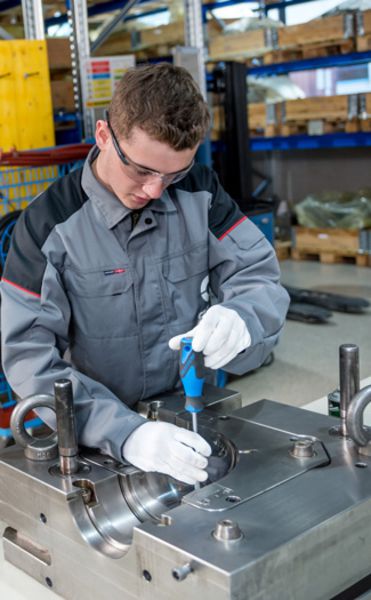Tool making is an essential craft that has been around for centuries. The evolution of tools and their design has contributed significantly to the development of civilization. Today, modern blacksmithing continues this tradition by creating unique, high-quality tools that meet the needs of various industries.
The process of tool making involves several steps, including designing, forging, heat treatment, and finishing. Each stage requires skillful craftsmanship and attention to detail to ensure the final product meets or exceeds industry standards.
Designing
The first step in tool making is designing the product. This involves working with clients or a team to determine what type of tool they need and how it will be used. Once an idea is established on paper, a prototype may be created using materials such as wood or plastic before starting actual production.
Forging
Forging refers to shaping metal into specific shapes while heating it in a forge. Blacksmiths use different types of hammers and anvils to shape hot metals like iron or steel into desired forms. Forging allows for customization according to client specifications or individual preference.
Heat Treatment
After forging comes heat treatment – a process that uses extreme temperatures (upwards of 1000°C) to alter physical properties such as hardness and strength in metal alloys. Heat treatment enhances the performance capabilities for each specific application intended for use with that particular tool.
Finishing
Once all these steps are complete comes finishing – which gives the final touches on aesthetics such as smoothing out rough edges caused during construction processes like filing down sharp corners/edges/surfaces against abrasives like sandpaper etc., polishing surfaces with oil-based compounds or fine-grit sandpaper resulting in a shiny surface finish depending upon requirements set forth by customer preferences.
Types Of Tools Made By Modern Blacksmiths
Modern blacksmiths make various types of tools ranging from hand-held items such as knives & chisels used daily around households globally; large-scale farming equipment like plows and harvesting machines to even specialized surgical instruments used in hospitals. Here are some of the most common types:
1. Hand Tools
Hand tools are among the most popular types of tools produced by blacksmiths. They include hammers, chisels, saws, knives, pliers, tongs and other items used in various industries such as construction, woodworking or metalworking.
2. Agricultural Tools
Farmers have been using tools for centuries to help with planting seeds & harvesting crops. Modern blacksmiths make farming equipment like plows (used to create furrows for planting), rakes (for collecting hay or picking up debris on fields), shovels (to move soil) etc., all designed specifically for agricultural applications.
3. Industrial Equipment
Modern Blacksmithing has a unique skill set that allows them to design and build custom parts for industrial machinery. These can range from small components like bolts and nuts made out of high-quality steel alloys too large scale production runs where they forge complete assemblies consisting of gears/levers/mounting brackets etc., depending upon client specifications.
4. Decorative Items
Blacksmithing is not limited only to functional items; it’s also possible to create decorative pieces such as gates, railings, lighting fixtures etc., which serve both aesthetic purposes while providing functional uses around homes/offices/public spaces highlighting an artistic touch.
Advantages Of Custom-Made Tools Over Mass-Produced Ones
The advantages of custom-made tools over mass-produced ones cannot be overstated when it comes down to performance efficiency coupled with durability factors combined with safety considerations involved during usage activities across diverse work environments worldwide:
1) Customization: Blacksmithing allows customization according to individual preferences or industry requirements that may not always be addressed by mass-produced alternatives available off-the-shelf products usually found at stores near you.This helps ensure that each tool operates optimally under specific conditions yielding maximum productivity benefits for workers.
2) Quality: Custom-made tools are usually constructed of higher quality materials and workmanship than mass-produced alternatives. This is because blacksmiths pay more attention to detail and use only the best materials available, resulting in tools capable of withstanding harsh conditions over years or even decades without failing.
3) Durability: The durability factor is another key advantage of custom-made tools. Blacksmiths craft each tool carefully by hand, which means they last longer than mass-produced alternatives that may have been put together haphazardly using low-quality materials during manufacturing processes like stamping & molding etc., yielding subpar results under heavy usage scenarios.
4) Cost-Effective: While it’s true that custom-made tools typically cost more upfront than their mass-produced counterparts, they often prove to be more cost-effective in the long run due to their superior performance capabilities coupled with a prolonged lifespan ensuring maximum ROI benefits across diverse industries worldwide.
Conclusion
Modern Blacksmithing continues to be an important craft today, providing unique and high-quality tools for various industries around the world. From designing to forging, heat treatment, finishing – these skilled craftsmen take great pride in every tool produced ensuring optimal performance efficiency while taking into consideration all safety factors involved during usage activities across diverse work environments worldwide.
The advantages of custom-made tools over mass-produced ones cannot be overstated when it comes down to performance efficiency coupled with durability factors combined with safety considerations involved during usage activities globally. Whether you’re working on a construction site or running a farm – blacksmiths make sure there’s always a perfect bespoke fit ensuring maximum productivity benefits from your investment while keeping workers safe throughout operations providing optimal ROI outcomes for business ventures operating within this space globally!
